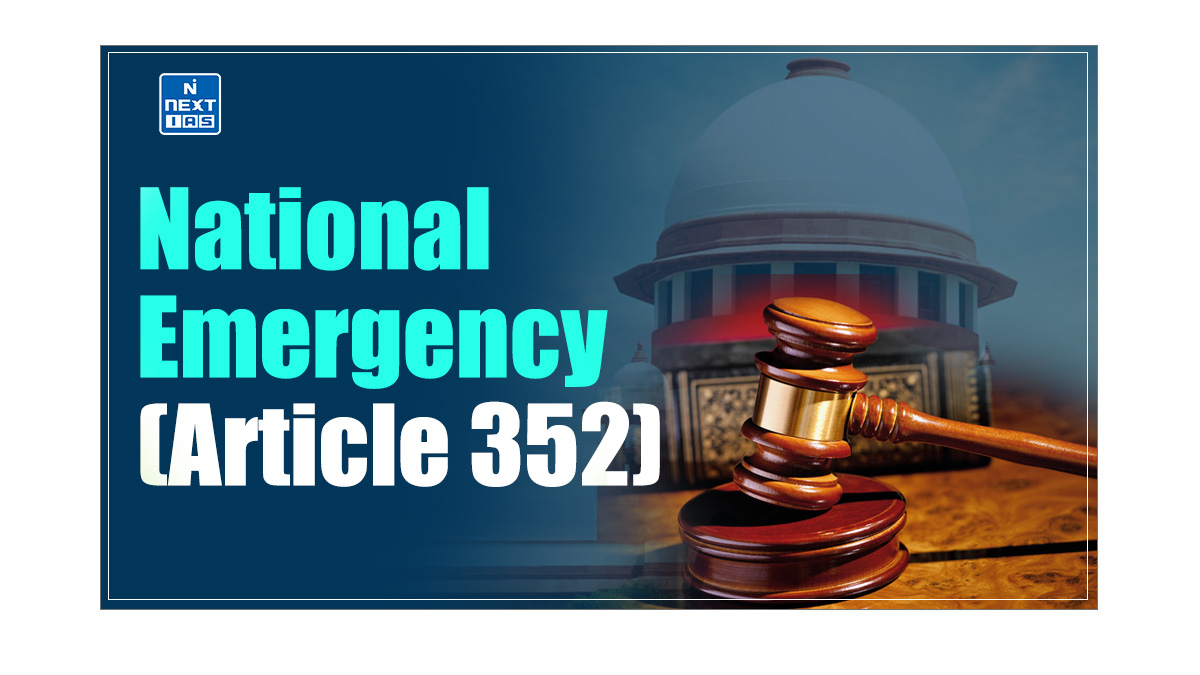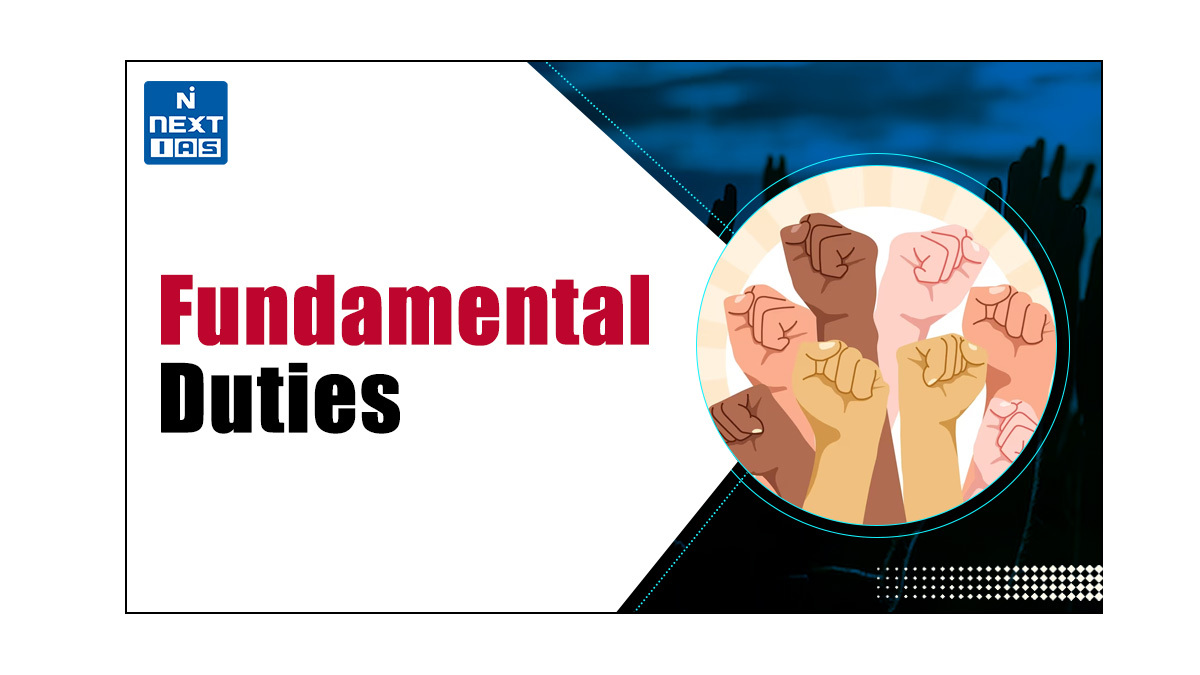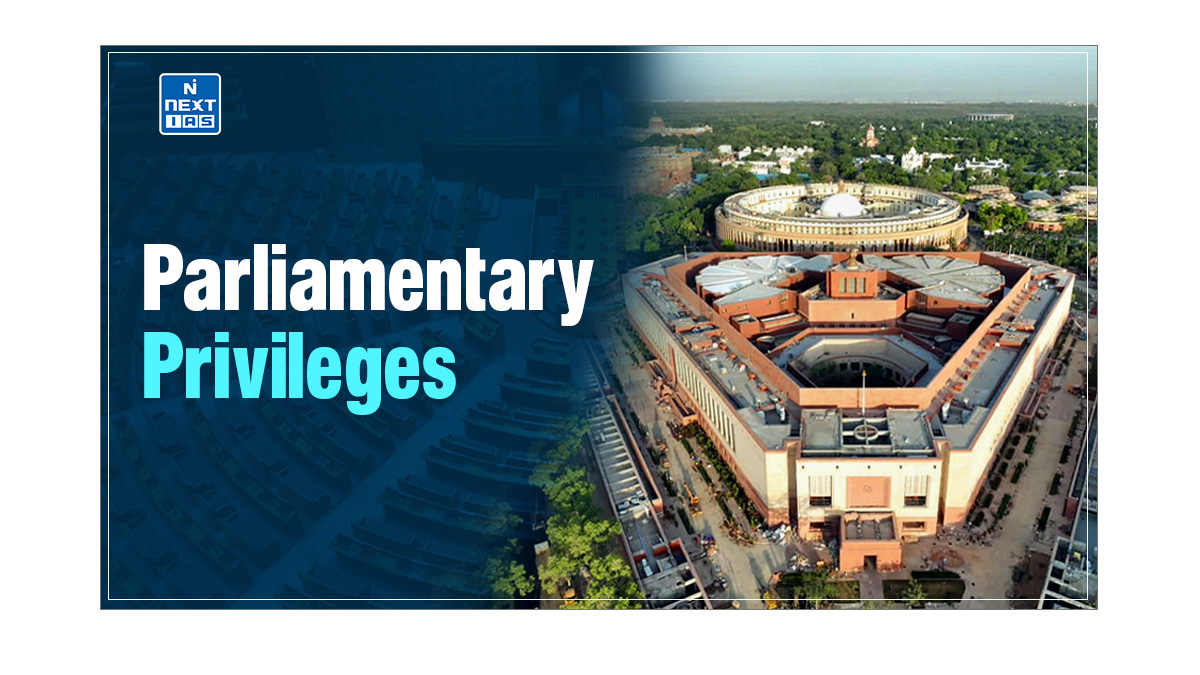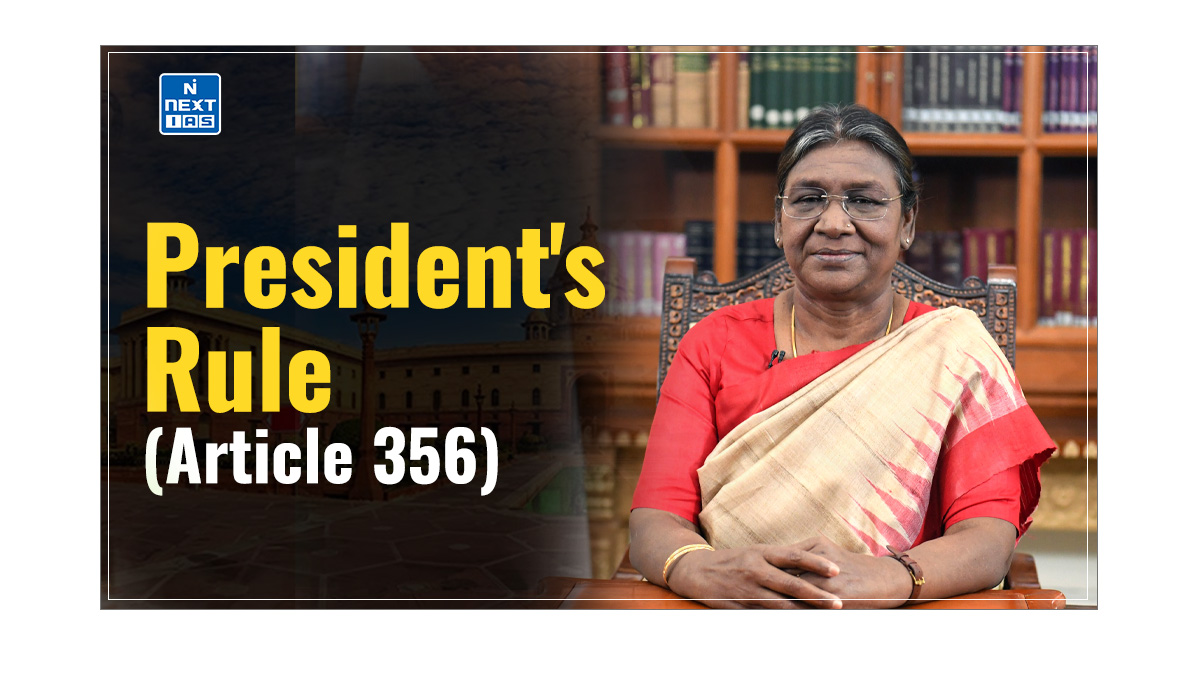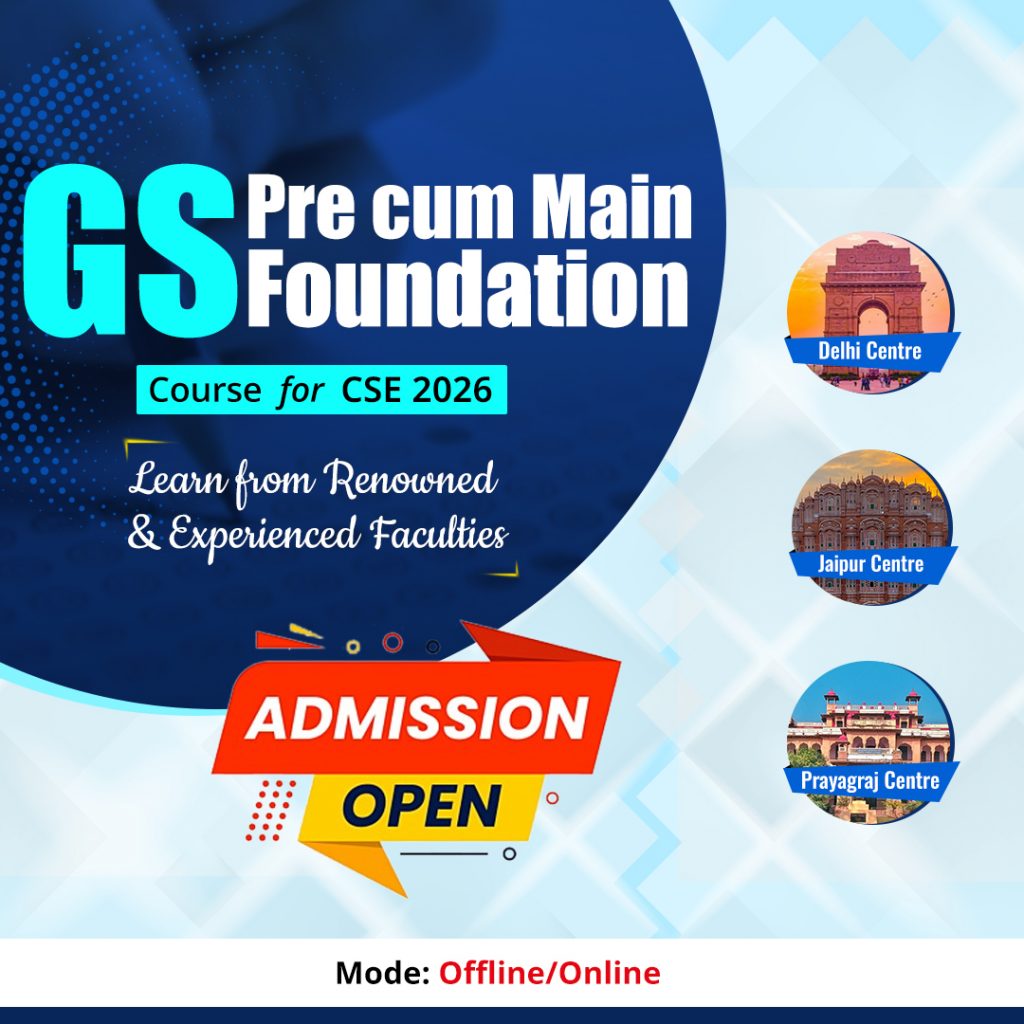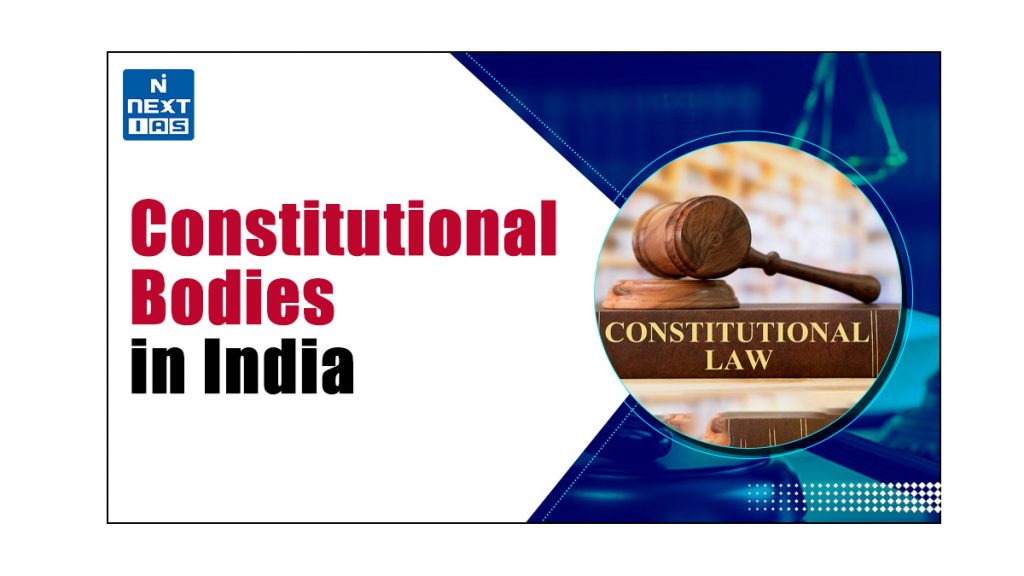
The Constitution of India provides for various Constitutional Bodies in India that play a pivotal role in the administration and ensure the smooth functioning of the democracy. Integral to the functioning of the democratic polity and governance in India, these bodies have a significant role in ensuring that the constitutional mandate is upheld and the country operates in the constitutional framework. This article of NEXT IAS explores some of the key Constitutional Bodies in India, their composition, functions, powers, and other related aspects.
What is a Constitutional Body?
In the context of India, a Constitutional Body refers to an institution or authority that derives its powers and responsibilities directly from the Constitution of India. The Constitution either directly establishes these entities or mandates their creation, outlining their composition, powers, functions, and duties. These bodies are explicitly mentioned in the Constitution, making them a fundamental part of the country’s governance and administrative structure. A Constitutional Body of India is also entrusted with performing specific functions to uphold democratic governance and ensure the effective implementation of constitutional mandates.
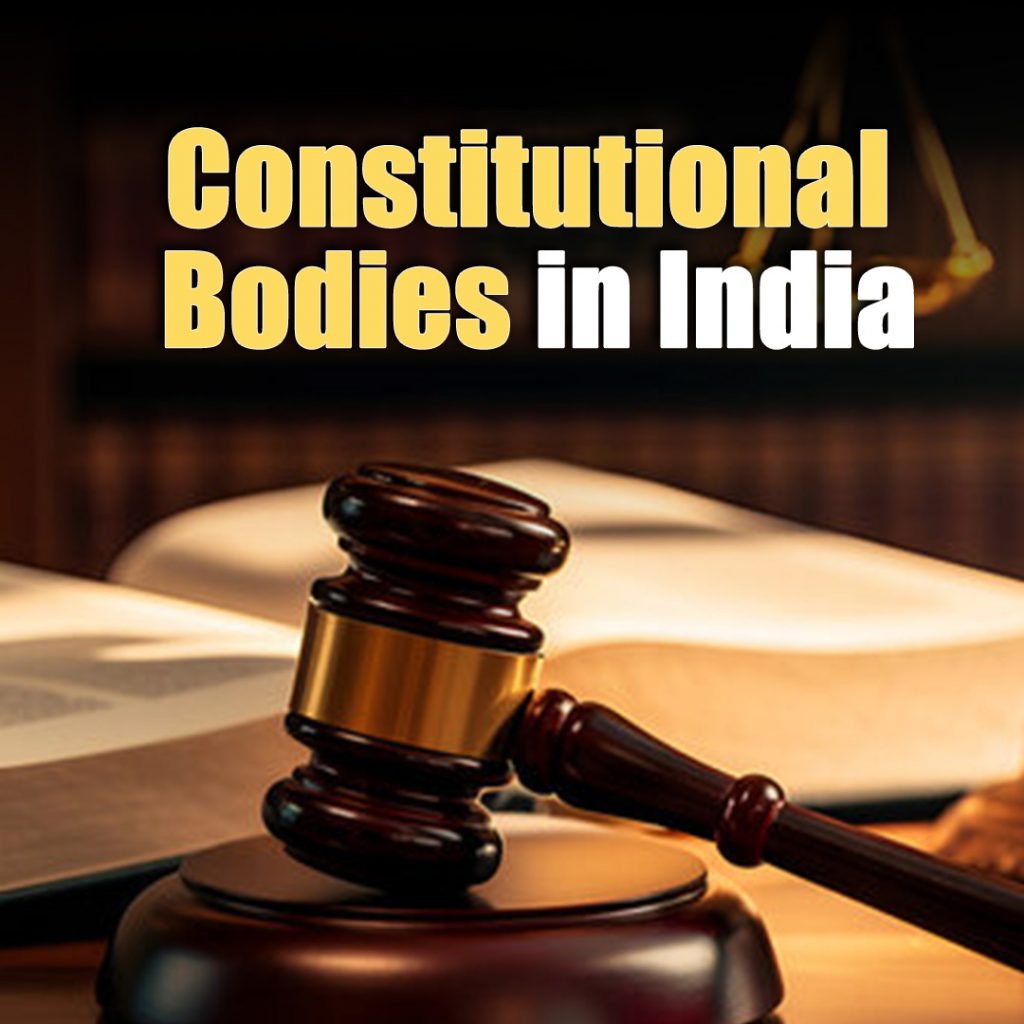
Important Constitutional Bodies of India
Some of the key constitutional bodies in India are listed below:
- Election Commission of India (ECI)
- Union Public Service Commission (UPSC)
- State Public Service Commission (SPSC)
- Finance Commission of India (FCI)
- Goods and Services Tax Council (GST Council)
- National Commission for Scheduled Castes (NCSC)
- National Commission for Scheduled Tribes (NCST)
- National Commission for Backward Classes (NCBC)
- Special Officer for Linguistic Minorities (CLM)
- Comptroller and Auditor General of India (CAG)
- Attorney General of India (AGI)
- Advocate General of the State (AGS)
Each of these bodies has specific roles and responsibilities as outlined in the related Constitutional provisions. A brief outline of each of the constitutional body in India in presented in the sections that follow.
Election Commission of India (ECI)
| Constitutional Provision(s) | Article 324 |
| Composition | – A Chief Election Commissioner and such number of other Election Commissioners as determined by the President of India. – At Present: Chief Election Commissioner and Two Election Commissioners |
| Appointment | By the President of India on the recommendation of a three-membered Selection Committee consisting of: – The Prime Minister of India – A Union Minister nominated by the Prime Minister – The Leader of Opposition (LoP) in the Lok Sabha |
| Tenure | 6 years or until they attain the age of 65 years, whichever is earlier. |
| Removal | – Chief Election Commissioner can be removed in the same manner and on the same grounds as a judge of the Supreme Court. – Other Election Commissioners can be removed on the recommendation of the Chief Election Commissioner. |
| Resignation | – Can resign by writing to the President of India. |
| Post-Tenure Appointment(s) | – Eligible for further appointment by the Union Government. |
| Duties and Powers | Power of superintendence, direction, and control of elections to Parliament, State Legislatures, the offices of President of India, and Vice-President of India. |
Read our detailed article on the Election Commission of India.
Union Public Service Commission (UPSC)
| Constitutional Provision(s) | Article 315 to Article 323 |
| Composition | A Chairman and such number of other members as determined by the President of India. |
| Appointment | By the President of India. |
| Tenure | 6 years or until they attain the age of 65 years, whichever is earlier. |
| Removal | – By the President of India, in the manner and on the grounds mentioned in the Constitution. In case of ground of ‘Misbehavior’, the President has to refer the matter to the Supreme Court for an enquiry. If the Supreme Court upholds the cause of removal and advises so, the President can remove the Chairman or a member of the UPSC. |
| Resignation | Can resign by writing to the President of India. |
| Post-Tenure Appointment(s) | – Chairman is not eligible for any further employment. – Other members are eligible for appointment as the Chairman of UPSC or a State Public Service Commission, but not for any other employment. – The Chairman or a member is not eligible for the second term. |
| Duties and Powers | The UPSC is the central recruiting agency in India. |
State Public Service Commission (SPSC)
| Constitutional Provision(s) | Article 315 to Article 323 |
| Composition | A Chairman and such number of other members as determined by the Governor. |
| Appointment | By the Governor of the state. |
| Tenure | 6 years or until they attain the age of 62 years, whichever is earlier. |
| Removal | – By the President of India, in the manner and on the grounds mentioned in the Constitution. In case of ground of ‘Misbehavior’, the President has to refer the matter to the Supreme Court for an enquiry. If the Supreme Court upholds the cause of removal and advises so, the President can remove the Chairman or a member of the SPSC. Note: Though the Chairman and the members are appointed by the Governor, they can be removed only by the President. |
| Resignation | Can resign by writing to the Governor. |
| Post-Tenure Appointment(s) | – Chairman is eligible for appointment as the Chairman or a member of the UPSC or as the chairman of any other SPSC, but not for any other employment. – Other members are eligible for appointment as the chairman or a member of the UPSC or as the chairman of that SPSC or any other SPSC, but not for any other employment. – The Chairman or a member is not eligible for the second term. |
| Powers | The SPSC conducts the examinations for the appointment to the services of the State. |
Finance Commission of India (FCI)
| Constitutional Provision(s) | Article 280 |
| Composition | A Chairman and four other members. |
| Appointment | By the President of India. |
| Term | Specified by the President in his/her order. |
| Post-Tenure Appointment(s) | Eligible for reappointment. |
| Functions | To make recommendations regarding – The distribution of the net proceeds of taxes to be shared between the Centre and the states, and the allocation between the states of the respective shares of such proceeds. – The principles that should govern the grants-in-aid to the states by the Centre (i.e., out of the Consolidated Fund of India). The measures needed to augment the Consolidated Fund of a State to supplement the resources of the Panchayats and the Municipalities in the State on the basis of the recommendations made by the State Finance Commission. Any other matter referred to it by the President in the interests of sound finance. |
Read our detailed article on the Finance Commission of India (FCI).
Goods and Services Tax Council (GST Council)
| Constitutional Provision(s) | Article 279-A |
| Constitutional Amendment Act | 101st Constitutional Amendment Act of 2016 |
| Composition | – The Union Finance Minister as the Chairperson. – The Union Minister of State in charge of Revenue or Finance. – The Minister in charge of Finance or Taxation or any other Minister nominated by each State Government. Note: The Chairperson of the Central Board of Indirect Taxes and Customs (CBlC) is a permanent invitee (non-voting) to all proceedings of the Council. |
| Secretariat | New Delhi |
| Ex-Officio Secretary | The Union Revenue Secretary |
| Functions | To make recommendations to the Centre and the states on the following matters: – The taxes, cesses and surcharges levied by the Centre, the States and the local bodies that would get merged in GST. – The goods and services that may be subjected to GST or exempted from GST. – Model GST Laws, principles of levy, apportionment of GST levied on supplies in the course of inter-state trade or commerce, and the principles that govern the place of supply and so on, etc. |
Read our detailed article on the Goods and Services Tax Council (GST Council).
National Commission for Scheduled Castes (NCSC)
| Constitutional Provision(s) | Article 338 |
| Composition | A Chairperson, a Vice-Chairperson, and three other members. |
| Appointment | By the President of India. |
| Tenure | 3 years |
| Post-Tenure Appointment(s) | Not eligible for the appointment for more than two terms. |
| Functions | To provide safeguards against the exploitation of the Scheduled Castes and Anglo-Indian Community as well as to protect their social, economic, educational, and cultural interests. |
Read our detailed article on the National Commission for Scheduled Caste (NCSC).
National Commission for Scheduled Tribes (NCST)
| Constitutional Provision(s) | Article 338-A |
| Composition | A Chairperson, a Vice-Chairperson, and three other members. |
| Appointment | By the President of India. |
| Tenure | 3 years |
| Post-Tenure Appointment(s) | Not eligible for the appointment for more than two terms. |
| Functions | To provide safeguards against the exploitation of the Scheduled Tribes as well as to protect their social, economic, educational, and cultural interests. |
Read our detailed article on the National Commission for Scheduled Tribes (NCST).
National Commission for Backward Classes (NCBC)
| Constitutional Provision(s) | Article 338-B |
| Constitutional Amendment Act | 102nd Constitutional Amendment Act of 2018 |
| Composition | A Chairperson, a Vice-Chairperson, and three other members. |
| Appointment | By the President of India. |
| Tenure | 3 years. |
| Post-Tenure Appointment(s) | Not eligible for the appointment for more than two terms. |
| Functions | To provide safeguards against the exploitation of the socially and educationally Backward Classes (BCs) as well as to protect their social, economic, educational, and cultural interests. |
Read our detailed article on the National Commission for Backward Classes (NCBC).
Special Officer for Linguistic Minorities (CLM)
| Constitutional Provision(s) | Article 350-B |
| Constitutional Amendment Act | 7th Constitutional Amendment Act of 1956 |
| Composition | The Commissioner for Linguistic Minorities (CLM) [One membered body] |
| Appointment | By the President of India. |
| Headquarters | Headquarters – New Delhi Regional Offices: – Belgaum (Karnataka), – Chennai (Tamil Nadu) and – Kolkata (West Bengal). |
| Ministry | Ministry of Minority Affairs |
| Functions | – To investigate all matters related to safeguards provided to linguistic minorities. – To submit to the President of India, the reports on the status of implementation of the Constitutional and the nationally agreed safeguards for the linguistic minorities. – To monitor the implementation of safeguards through questionnaires, visits, conferences, seminars, meetings, review mechanisms, etc. |
Comptroller and Auditor General of India (CAG)
| Constitutional Provision(s) | Article 148 to Article 151 |
| Appointment | By the President of India. |
| Tenure | 6 years or up to the age of 65 years, whichever is earlier. |
| Resignation | Can resign by writing to the President. |
| Removal | By the President on the same grounds and in the same manner as a judge of the Supreme Court. |
| Functions | To audit the receipts and expenditures of the Central Government, State Governments, and other bodies that receive funding from the Government. |
Read our detailed article on the Comptroller and Auditor General (CAG) of India.
Attorney General of India (AGI)
| Constitutional Provision(s) | Article 76, Article 88, Article 105. |
| Appointment | By the President of India. |
| Term | Not fixed by the Constitution. |
| Resignation | Can resign by writing to the President of India. |
| Remuneration | Determined by the President. |
| Functions | Acts as the primary lawyer of the Central Government and advises it on all legal matters along with representing it in the Supreme Court and High Courts. |
Read our detailed article on the Attorney General of India (AGI).
Advocate General of the State (AGS)
| Constitutional Provision(s) | Article 165, Article 177, Article 194 |
| Appointment | By the Governor of the State. |
| Term | Not fixed by the Constitution. |
| Resignation | Can resign by writing to the Governor of the State. |
| Remuneration | Determined by the Governor. |
| Functions | Acts as the primary lawyer of the State Government and advises it on all legal matters along with representing it in the Supreme Court and High Courts. |
Read our detailed article on the Advocate General of the State.
Conclusion
The Constitutional Bodies in India play a vital role in upholding the principles enshrined in the Constitution and ensuring the smooth functioning of democracy. From overseeing elections to promoting transparency and accountability, these bodies are entrusted with significant responsibilities that contribute to the governance and welfare of the nation. As guardians of democracy, the constitutional bodies continue to strive towards the ideals of justice, equality, and integrity, thereby strengthening the foundation of India’s democratic framework.
GS - 2